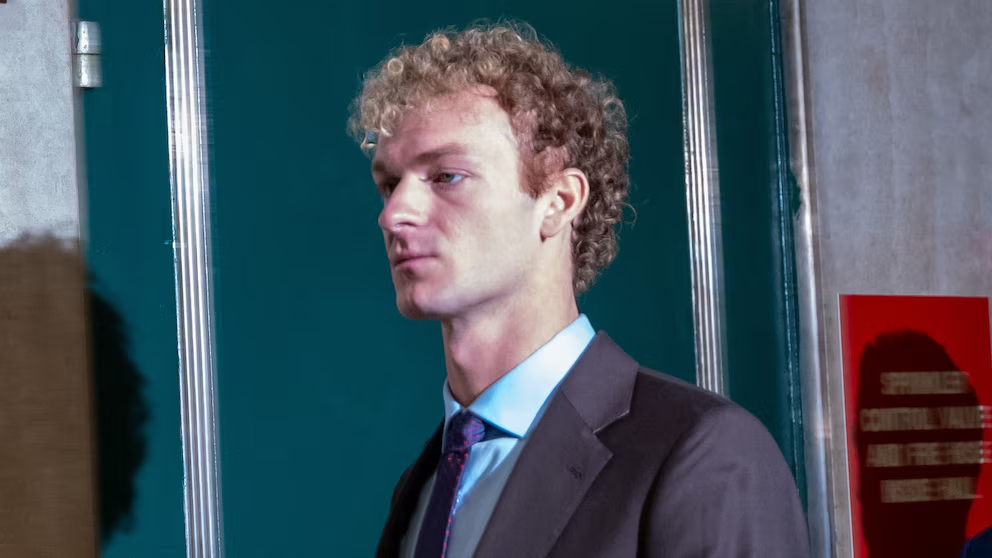Jurors on the Daniel Penny chokehold trial returned to deliberations for a fourth day Friday for just an hour before telling the court they could not come to an agreement on the top charge, manslaughter, as they weigh the fate of a 26-year-old Marine veteran and architecture student accused of killing a mentally ill homeless man who threatened to kill people on a Manhattan subway car.
Around 11 a.m., the jurors sent a note to the court stating, “We the jury request instructions from Judge [Maxwell] Wiley. At this time, we are unable to come to a unanimous vote on count 1 – manslaughter in the second degree.”
The judge sent them back to deliberate more, but they told the court shortly after 3 p.m. that they still could not reach a unanimous decision.
The charge requires prosecutors to prove that Penny acted with recklessness when he grabbed Jordan Neely in a chokehold. Neely had barged onto the train while high on drugs, threatening to kill passengers during a psychotic episode, according to trial testimony.

The judge initially ruled that the jury could not deliberate on the second charge unless they found Penny not guilty of manslaughter by some reason other than that the chokehold was justified. However, after jurors said they were deadlocked a second time, Assistant Manhattan District Attorney Dafna Yoran asked to have the top charge dismissed to allow the jury to debate the lesser charge of criminally negligent homicide, which carries a maximum punishment of four years in prison.
The judge agreed and sent the jury home for the day. They will resume deliberations Monday, only on the second charge.
“Manslaughter in the second degree is dismissed,” Wiley told the jurors. “What that means is you are now free to consider count two. Whether that makes any difference, I have no idea.”
Wiley earlier gave the jurors “Allen charge” instructions after giving the attorneys time to review, but they still failed to reach a consensus.
Allen charges refer to jury instructions given to a hung jury urging them to agree on a verdict. They have a controversial history, with critics warning they can push jurors to change their views under peer pressure. They get their name from an 1896 Supreme Court decision in Allen v. United States.
Penny’s defense asked for a mistrial to be declared, but the judge said he would give jurors more time and read them the Allen charge instructions.
Wiley told the jurors their vote must be unanimous, and if they cannot reach a unanimous verdict on the top charge, a new trial will have to be set with a new jury.













